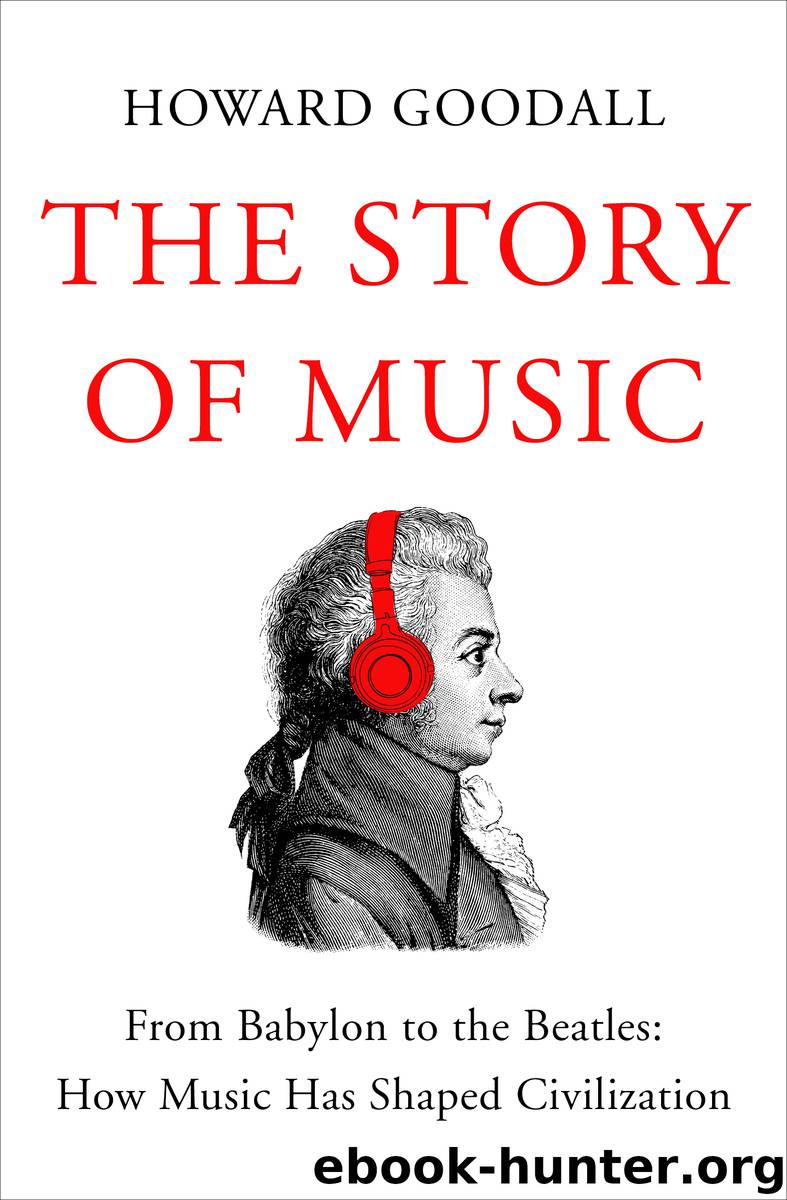The Story of Music by Howard Goodall

Author:Howard Goodall [Goodall, Howard]
Language: eng
Format: epub
ISBN: 978-1-4804-4762-2
Publisher: Pegasus Books
Published: 2013-12-04T22:43:00+00:00
Dvořák’s optimism was as much scoffed at as admired, and his comments about ‘Negro music’ made front-page news on both sides of the Atlantic. Italian composer Puccini remarked a few years later, ‘There is no such thing as American music. What they have is Negro music, which is almost the savagery of sound.’ Added to European snobbery was white American scepticism about Dvořák’s public statements. Bostonian composer Edward MacDowell, who himself had trained in Paris and Frankfurt rather than America, and who mostly wrote German-style music, responded, ‘We have here in America been offered a pattern for an American national music costume by the Bohemian Dvořák… though what Negro melodies have to do with Americanism in art still remains a mystery.’ Nonetheless, MacDowell’s own mother, Frances, did provide a scholarship for a young African-American musician, Harry Thacker Burleigh, to join Dvořák’s classes at the National Conservatory of Music, where he introduced the Bohemian composer to spirituals and assisted him with orchestral part-copying. Burleigh arranged some of these spirituals, published in 1901 as Six Plantation Melodies for Violin and Piano, and later had considerable success with song arrangements of spirituals and the composition of sentimental ballads, including ‘Little Mother of Mine’ (1917), ‘Dear Old Pal of Mine’ and ‘Under a Blazing Star’ (1918). Of Dvořák’s other students, Rubin Goldmark responded to his call to arms with a setting of Longfellow’s Hiawatha and, in 1923, one year before the première of his own pupil George Gershwin’s Rhapsody in Blue, a Negro Rhapsody. Dvořák’s other notable student, organist and composer Harry Rowe Shelley, may not have heeded the call as conscientiously, certainly not if his orchestral works Souvenir de Baden-Baden and The Crusaders are anything to go by.
But if Dvořák’s teaching methods raised eyebrows among his adopted countrymen, his own American compositions were to prove even more controversial. His New World symphony of 1894 in particular was scrutinised for the extent to which it was actually ‘American’, the original source of its melodies, and whether it was even Dvořák’s right to appropriate folk music styles (if not actual melodies) of another community for his composition.
One very vocal opponent of the tide of ethnic imitation was the writer, civil rights activist and co-founder of the National Association for the Advancement of Colored People, W. E. B. Du Bois. He was at pains to point out in The Conservation of Races (1897) and in his seminal essay collection The Souls of Black Folk (1903) that the slave (‘Sorrow’) songs of the plantations were not, as Dvořák would have it, a national resource open to all Americans. Rather they were quite specifically the voice of the oppressed African-American – ‘these songs are the articulate message of the slave to the world’ – and should remain so. He described having heard the ‘Sorrow’ songs as a child, including ‘Swing Low, Sweet Chariot’, which he called ‘the cradle-song of Death’, recalling that they ‘came out of the South unknown to me, one by one, and yet at once I knew them as of me and of mine… This was primitive African music… the voice of exile.
Download
This site does not store any files on its server. We only index and link to content provided by other sites. Please contact the content providers to delete copyright contents if any and email us, we'll remove relevant links or contents immediately.
| Biographies | Business |
| History & Criticism | Instruments |
| Musical Genres | Recording & Sound |
| Reference | Songbooks |
| Theory, Composition & Performance |
The Goal (Off-Campus #4) by Elle Kennedy(12436)
Kathy Andrews Collection by Kathy Andrews(10534)
Diary of a Player by Brad Paisley(6867)
What Does This Button Do? by Bruce Dickinson(5530)
Assassin’s Fate by Robin Hobb(5242)
Big Little Lies by Liane Moriarty(4884)
Pale Blue Dot by Carl Sagan(4009)
Sticky Fingers by Joe Hagan(3455)
The Heroin Diaries by Nikki Sixx(2935)
The Death of the Heart by Elizabeth Bowen(2906)
Beneath These Shadows by Meghan March(2720)
The Help by Kathryn Stockett(2705)
Confessions of a Video Vixen by Karrine Steffans(2678)
How Music Works by David Byrne(2531)
Jam by Jam (epub)(2489)
Harry Potter 4 - Harry Potter and The Goblet of Fire by J.K.Rowling(2417)
Strange Fascination: David Bowie: The Definitive Story by David Buckley(2368)
Petty: The Biography by Warren Zanes(2240)
Darker Than the Deepest Sea by Trevor Dann(2210)
